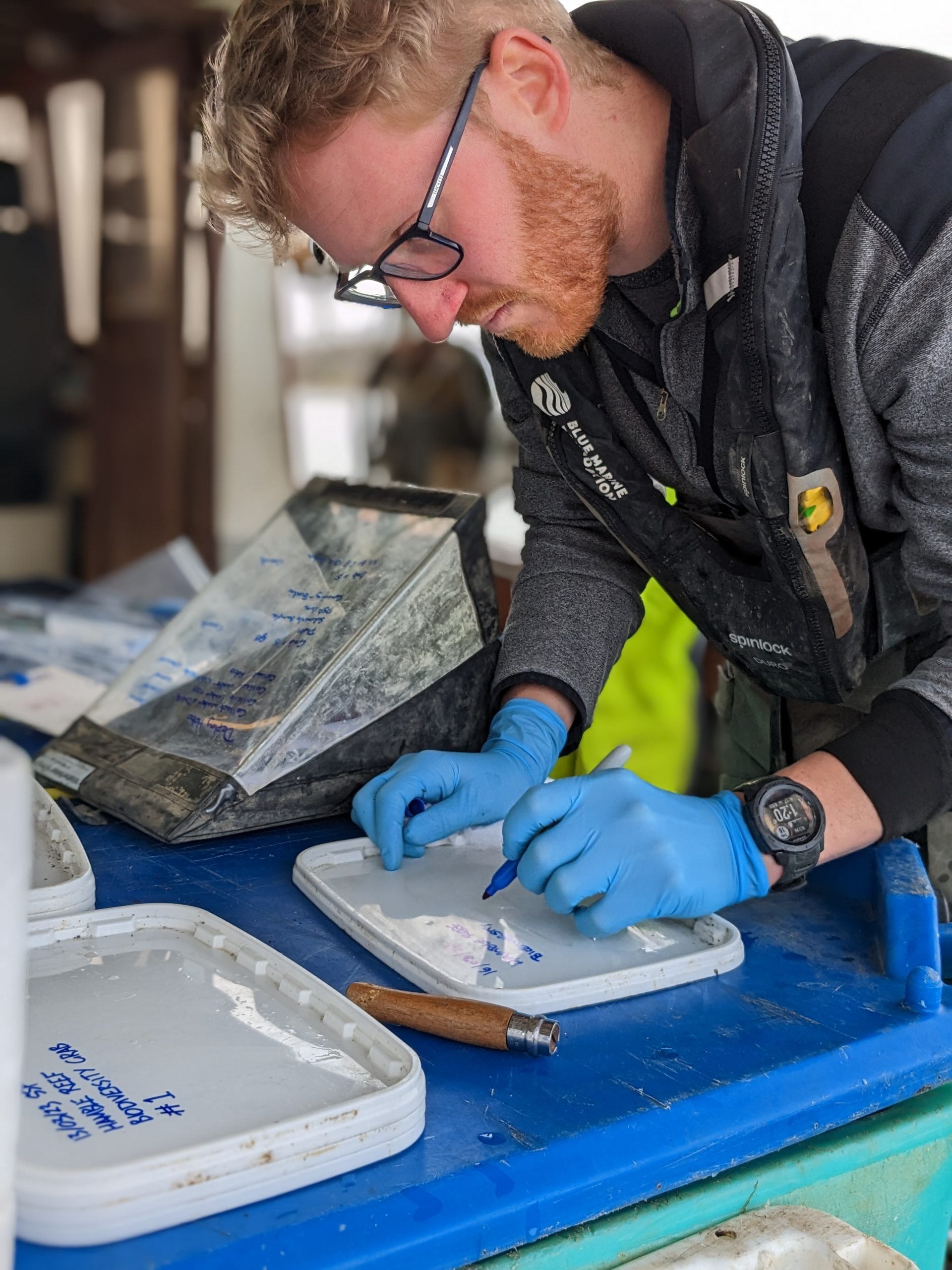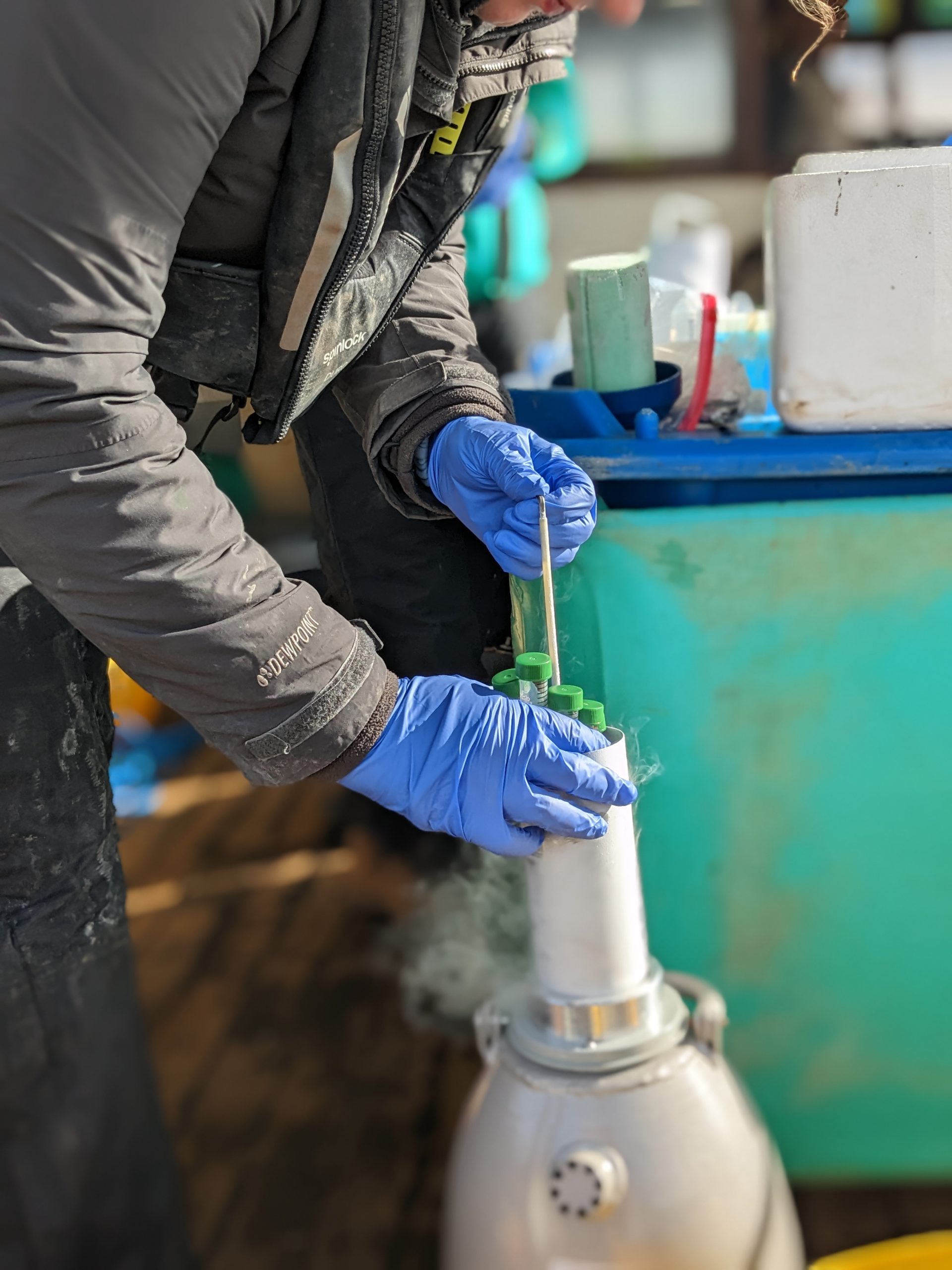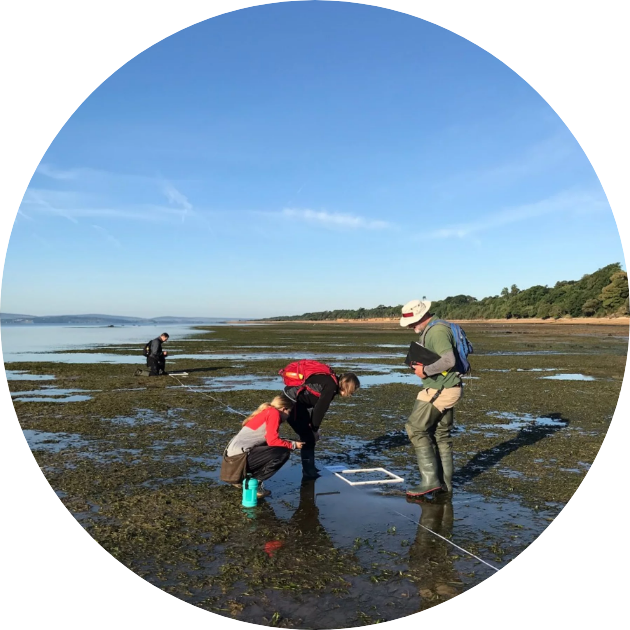Research
We are developing an innovative seascape-scale approach to restore and reconnect fragmented oyster, saltmarsh, seabird and seagrass habitats collectively in the Solent. The benefits of this approach will be quantified to showcase the importance of protecting marine environments at seascape scales. Scientific monitoring and research are consequently a fundamental part of the Solent Seascape Project.

Marine habitat restoration is in its infancy and as well as restoring habitats the project team will be monitoring the wider benefits of seascape scale restoration, including carbon sequestration, nutrient remediation and connectivity between habitats for mobile species such as fish. We will be assessing the progress of all aspects of the project, from active habitat restoration to the impacts of public engagement and outreach. The project will ultimately provide a series of lessons learned from taking a community engaged, seascape-scale restoration approach. With these takeaways, we will create a blueprint for restoring temperate marine habitats elsewhere.

The University of Portsmouth play a key role within the Solent Seascape Project. They are leading the overall co-ordination and delivery of our comprehensive scientific programme, with all project partners contributing monitoring data. The project is using a range of established and emergent techniques including baited remote underwater videos, acoustic fish tagging and environmental DNA (eDNA) to assess biodiversity across the different marine habitats.

The team are quantifying the impact of a) improving habitat condition through protection and b) actively restoring habitats on carbon sequestration, water quality improvement (including nitrate removal), biodiversity and fish stocks. The Solent Seascape Project will pioneer and monitor the impact of large-scale blue carbon habitat restoration in the UK, and act as a test site for implementation and further development of voluntary blue carbon and biodiversity credit methodologies.

Ecological connectivity of habitats will be assessed at different geographic scales across the Solent seascape. This will allow us to determine the influence of distance between habitats and habitat quality on fish abundance, community composition and population structure of key commercial and conservation species.

How can you be involved?
Interested in getting involved in the Solent Seascape Project? Take a look at our volunteering opportunities now.

The Solent Seascape Project Partners are

The Solent Seascape Project is supported by East Head Impact and the Endangered Landscapes & Seascapes Programme (ELSP), managed by the Cambridge Conservation Initiative and funded by Arcadia.

